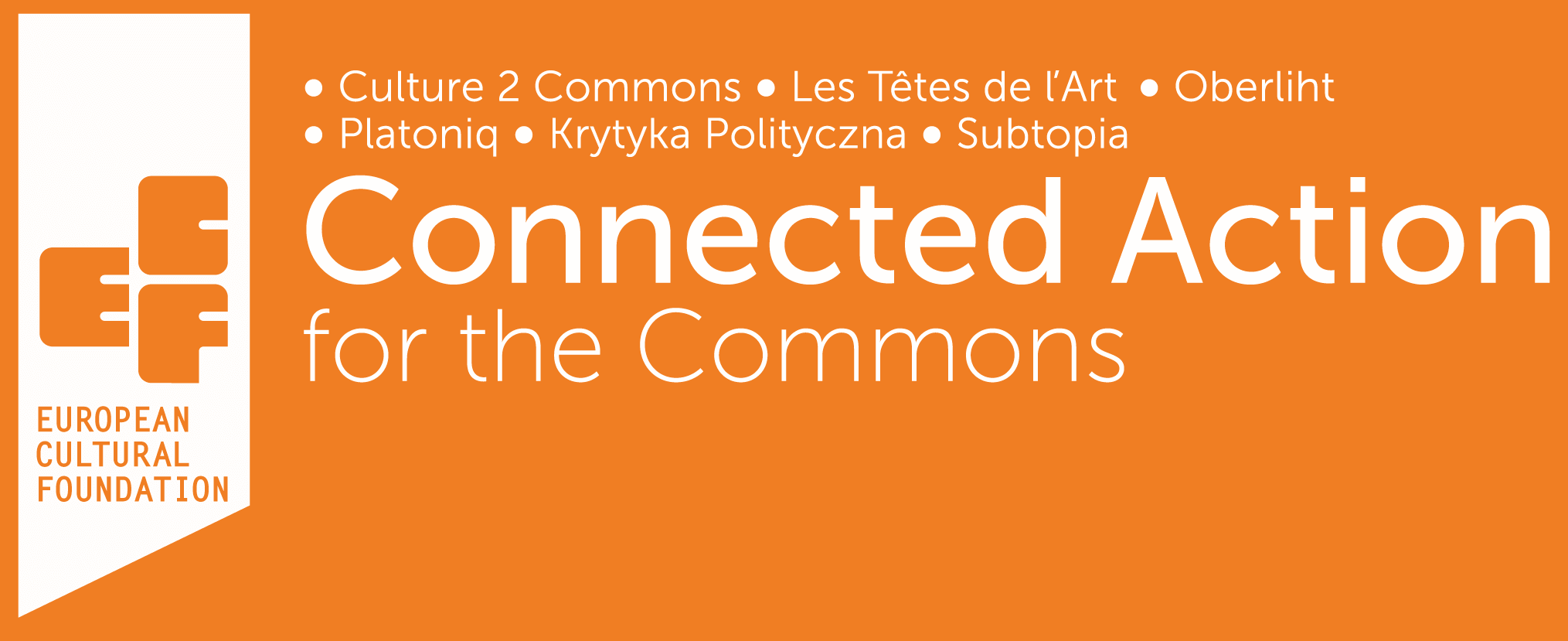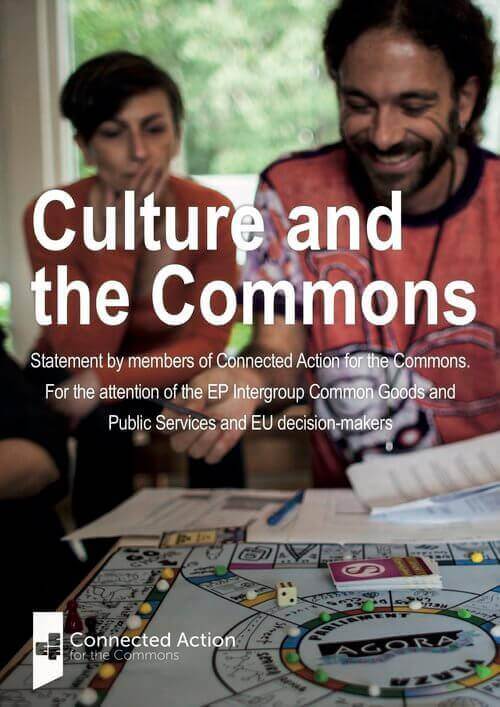With our European-wide network of cultural organisations accelerating the movement of the commons in Europe we prepared the statement “Culture and the Commons” urging European decision-makers to embed culture as an important perspective and practice contributing to the commons in their policy deliberations.
Why culture?
As a consequence of migration, the development of new communications systems and economic (inter)dependencies, different cultures are becoming increasingly connected with one another. The result of these processes is a culturally diverse Europe – a strong asset in today’s globalised society. This asset needs to be preserved and promoted. Cities in Europe are home to a wide range of communities from different cultures and therefore need to adress increasingly complex social issues. These developments make it all the more urgent to give the same rights to all citizens, regardless of their cultural background and social or economic status, without discrimination. This includes access to education, health care citizen’s right (eg. the right to vote) and social services. Local governments need to make sure citizens from different cultures feel accepted, as well as being represented and having the right to participate in democratic processes.
Culture and the commons
At the same time the emergence of of ‘commoming’ practises across Europe and beyond – as collective ventures of co-development and co-government – are dramatically affecting the way we look at our societies by challenging the duopoly of the state and market. In these inclusive, collaborative and co-creating practises, culture is a key factor in terms of encouraging equality and experience, as well as accepting diversity and negotiating participation. We believe culture functions as a language. We believe culture offers much needed imagination. We believe culture is a testing ground for commoning and a space where we can negotiate ways of living together.
The complete statement was distributed at the European Commons Assembly, which took place in Bruxelles on November 15th and 16th 2016, including a session in the European Parliament, in cooperation with the EP intergroup on Common Goods and Public Services. You can screen that session via this channel.
The complete statement is available for download at the website of the European Cultural Foundation.

